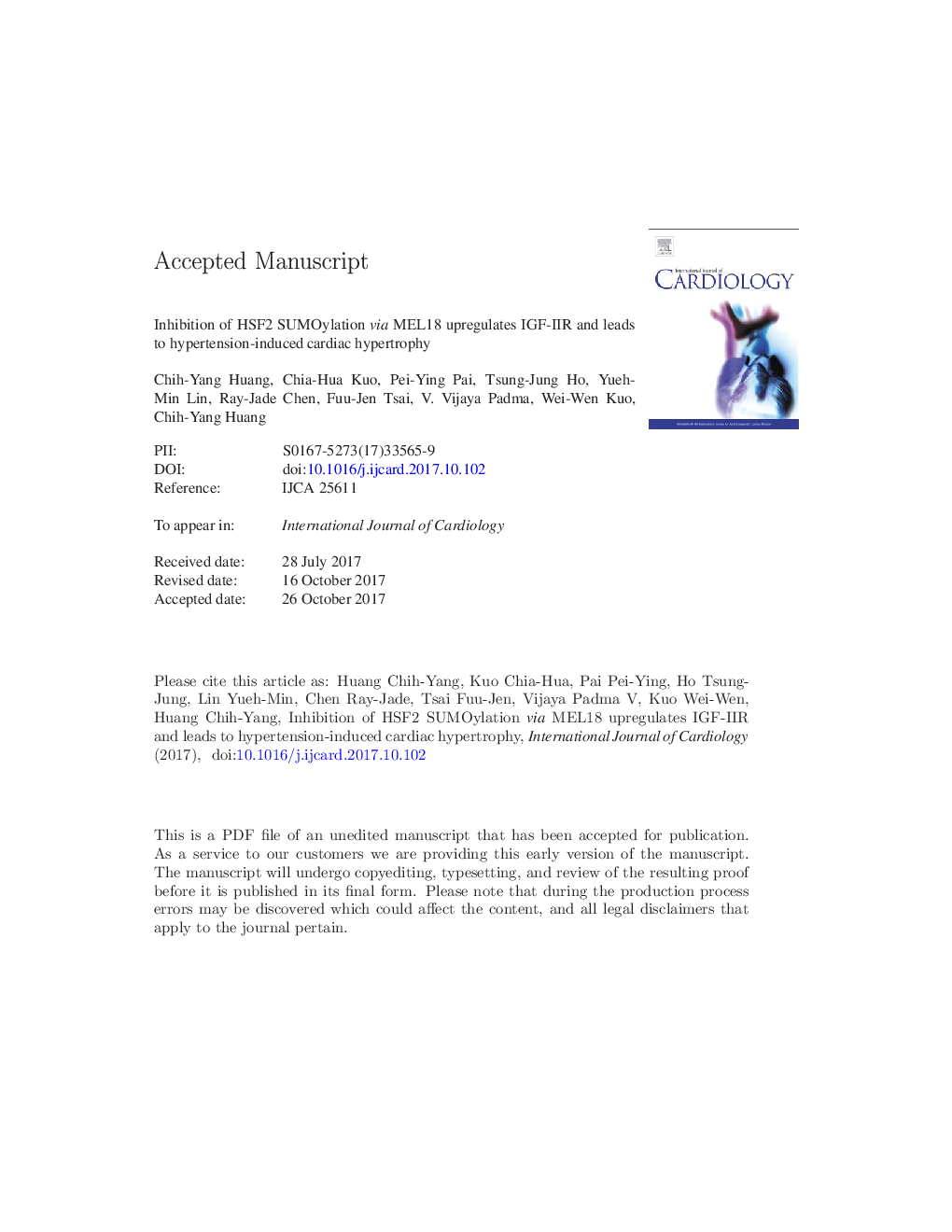| Article ID | Journal | Published Year | Pages | File Type |
|---|---|---|---|---|
| 8662361 | International Journal of Cardiology | 2018 | 32 Pages |
Abstract
Cardiac hypertrophy is a major characteristic of early-stage hypertension-related heart failure. We have found that the insulin-like growth factor receptor II (IGF-IIR) signaling was critical for hypertensive angiotensin II-induced cardiomyocyte hypertrophy and apoptosis. Moreover, this IGF-IIR signaling was elegantly modulated by the heat shock transcription factors (HSFs) during heart failure. However, the detailed mechanism by which HSFs regulates IGF-IIR during hypertension-induced cardiac hypertrophy remains elusive. In this study, we found that heat shock transcription factor 2 (HSF2) activated IGF-IIR to induce cardiac hypertrophy for hypertension-induced heart failure. The transcriptional activity of HSF2 appeared to be primarily mediated by SUMOylation via conjugation with small ubiquitin-like modifier-1 (SUMO-1). The SUMOylation of HSF2 was severely attenuated by MEL18 (also known as polycomb group ring finger 2 or PCGF2) in the heart of spontaneously hypertensive rats (SHR). Inhibition of HSF2 SUMOylation severely induced cardiac hypertrophy via IGF-IIR-mediated signaling in hypertensive rats. Angiotensin II receptor type I blocker (ARB) treatment in spontaneously hypertensive rats restored HSF2 SUMOylation and alleviated the cardiac defects. Thus, our study uncovered a novel MEL18-SUMO-1-HSF2-IGF-IIR pathway in the heart that profoundly influences cardiac hypertrophy for hypertension-induced heart failure.
Keywords
Related Topics
Health Sciences
Medicine and Dentistry
Cardiology and Cardiovascular Medicine
Authors
Chih-Yang Huang, Chia-Hua Kuo, Pei-Ying Pai, Tsung-Jung Ho, Yueh-Min Lin, Ray-Jade Chen, Fuu-Jen Tsai, V. Vijaya Padma, Wei-Wen Kuo, Chih-Yang Huang,
